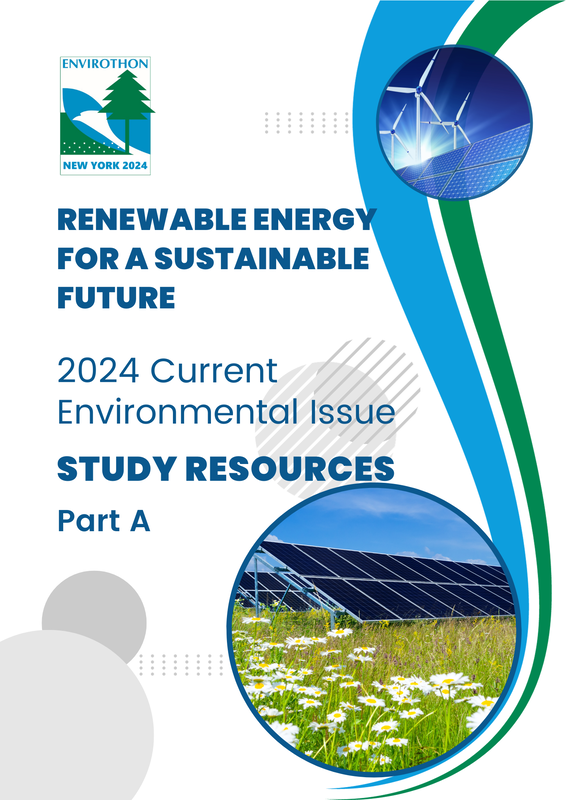2024 Current Issue
Renewable Energy for a Sustainable Future
2024 Key Topics and Learning Objectives
|
In our modern world, energy touches almost every aspect of our lives. It lights our homes, transports our food, cleans our water, and fuels our cars, powers life-saving medical equipment, and so much more. The production and use of energy are deeply entwined with the economy, social and political issues, and the environment. The environmental, economic, and social outcomes of the choices being made about energy now will shape the future of our planet. Governmental policies, industry, and public opinion are shifting to embrace a sustainable future that includes renewable energy.
Today, power generation from renewable energy sources accounts for approximately one third of the total global output 1 . Signatories to the United Nations Convention on Climate Change agreed to work towards the goal of nearly 80% of the global power demand to be met by renewable sources by 2050 1. New York State is working to build a vibrant renewable energy industry covering all facets of the process from manufacturing to installation, and including technologies for solar, wind, biomass, and hydroelectric energy. New York State also has some of the most progressive energy and climate goals in the United States, including: the adoption of the Clean Energy Standard, the passage of a mandate for 70% of electricity in the state to be from renewable sources by 2030, the goal of achieving a 40% reduction in greenhouse gas emissions by 2030 (using 1990 levels as the baseline), and saving 185 trillion British Thermal units (Btus) in end-use energy by 2030 through greater efficiency (New York State Legislation: Climate Leadership and Community Protection Act). Decisions about sustainable energy are not just made by politicians and corporations. Individuals can choose what energy practices to support and can advocate for the transition to renewables. New energy innovations are constantly transforming this emerging field, with technological developments in energy sources, production methods, and flexible delivery. Students will learn about the different sources of renewable energy; the challenges facing the transition from traditional fossil fuels to renewables; the environmental, economic, and social impacts of energy consumption; and how individuals can affect change in their communities.1 Source IRENA (International Renewable Energy Agency) World Energy Transitions Outlook 2022 Energy Master Plan Clean energy is vital for our future from both an economic development and environmental sustainability policy perspective. With this in mind, Governor Murphy, through Executive Order 28, has set an ambitious goal of setting New Jersey on the path to 100% clean energy by 2050, and we are moving full speed ahead.
New Jersey’s Energy Master Plan (EMP) sets forth a strategic vision for the production, distribution, consumption, and conservation of energy in the State of New Jersey. The state’s energy policy reflects the full scope of New Jersey’s current energy sector, as well as its future. We’ll create new jobs, industries, and workforce development as the state expands its green economy, providing exciting new opportunities for New Jersey’s residents and business community. Resources: Energy Master Plan |
2024 Current Topic Resources The 2024 Current Issues Written test will be from the resources below: 2019 Energy Master Plan Pathway to 2050 - Full Report About the Current Issue Study Guides:There will be TWO (2) sections of study resources for Current Issues:
2024 Sample Test 
|





